The Catalyst Killing - [9]
Kristine Larsen answered swiftly that she thought it as good as impossible that there had been anyone else either before Falko disappeared, or immediately after. She did, however, add slightly hesitantly that in recent months she had started to wonder if there might be another man in Marie Morgenstierne’s life. The thought had struck her because Marie’s moods had swung markedly back and forth over the course of the summer. One moment there was something brooding about her, the next she was unusually happy and carefree.
Kristine Larsen otherwise agreed with Trond Ibsen that Marie Morgenstierne’s last political meeting had been very undramatic and could not possibly have had anything to do with her death. Kristine had herself walked home alone to her flat. She had asked Marie if she wanted to come back for some coffee or a beer, but Marie had said that she had to be somewhere else. Kristine had been a bit taken aback and then thought that there might be a new man in the picture, but had not wanted to ask. She deeply regretted that now, she added in a quiet voice.
In answer to my final question about Miriam Filtvedt Bentsen’s split with the group, Kristine Larsen said that she had possibly experienced the situation as being less dramatic than the others, but that she had also been taken aback and disappointed when Miriam stood up and left. She had known Miriam since they were around sixteen years old, and still found it hard to imagine that she would do anyone any harm.
This caught my interest and I asked what harm Miriam might have done, other than leave the group.
Kristine Larsen bit her lip and then started to backpedal furiously. She made it clear that she herself did not think that Miriam had done anything wrong, and as far as she knew, no one suspected Miriam of having anything whatsoever to do with Marie Morgenstierne’s death. But I should of course talk to Anders and Trond as well, she said, when I continued to look at her questioningly.
Then, all of a sudden, Kristine Larsen did not want to say anything more. She sat by the table pale, silent and with tears in her eyes. She had been so helpful until this point that I did not feel like pushing her any further, certainly not at the moment. So I did as she said, and drove in the direction of Anders Pettersen’s address.
This group of student activists was starting to interest me more and more. I thought it was more than likely that the group were in some way connected to Marie Morgenstierne’s death and Falko Reinhardt’s disappearance.
VIII
Anders Pettersen did not answer his telephone, but did open the door when I rang the doorbell of his flat near Grefsen. He apologized, explaining that he had just come home from a lecture on non-figurative painting at the Academy of Fine Art, and showed me a timetable that undeniably supported what he said.
This seemed reasonable enough, given that his flat was more or less full of self-signed paintings in a very non-figurative style. I had no idea what any of them were supposed to be, so could not make any comment on their artistic merit.
Anders Pettersen was almost the same height as me, had long dark hair, and was of a more stocky build than Trond Ibsen. It was easy to appreciate that under other circumstances he would appear both charismatic and handsome. Now, however, he seemed very affected by the current situation. He repeated several times that Falko’s disappearance in itself was strange, but after all he was someone who provoked powerful emotions in people and it would be easy enough to understand if he had enemies. But it was completely incomprehensible that anyone might think of killing Marie Morgenstierne. He thought it was possible that the intelligence services, or an opposing political group, might want to attack the group. He was increasingly convinced that that was the explanation for Falko Reinhardt’s disappearance. But the murder of Marie Morgenstierne was inexplicable. If it was in some way related to Falko’s disappearance, why two years later? And if the intent was to strike at the group, why Marie Morgenstierne and not himself or Trond Ibsen?
Anders Pettersen seemed to be an intelligent if somewhat unsystematic thinker who had nothing against the sound of his own voice. Given his extremely radical political views and his agitated state of mind, his line of thought was not entirely unreasonable. But I was more interested in the facts.
Merely saying the name Falko Reinhardt for Anders Pettersen proved to be like pressing a button. He had known Falko since class three at school, and had always regarded him as a kind and wise elder brother. Falko was, for him, Norway’s answer to Che Guevara and a possible future leader on a par with Mao. The reason that he had now informally assumed leadership of the group in Falko’s absence was precisely because he had known Falko the longest, and could thus best imagine what he would have thought.
As for the disappearance itself, Anders Pettersen had little to add to what the others had already told me. He had initially refused to believe that Falko was dead in the period following his disappearance, but gradually the doubt had crept in. It seemed increasingly odd that Falko had not contacted him or the group if he was still alive. Falko might be in a secret American prison camp and unable to get out, but it seemed more and more likely that he had simply been killed. And Anders could imagine no satisfactory explanation of how any hypothetical kidnappers or murderers had managed to get Falko out of the cabin without being noticed.
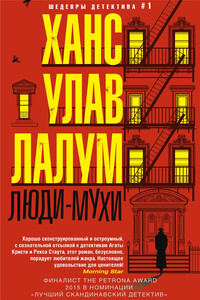
Убит бывший лидер норвежского Сопротивления и бывший член кабинета министров Харальд Олесен. Его тело обнаружено в запертой квартире, следов взлома нет, орудие убийства отсутствует. На звук выстрела к двери Олесена сбежались все соседи, но никого не увидели. Инспектор уголовного розыска Колбьёрн Кристиансен считает, что убийство, скорее всего, совершил кто-то из них. Более того, он полагает, что их показания лживы.
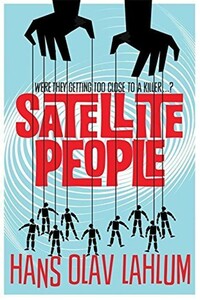
A gripping, evocative, and ingenious mystery which pays homage to Agatha Christie, Satellite People is the second Norwegian mystery in Hans Olav Lahlum's series. Oslo, 1969: When a wealthy man collapses and dies during a dinner party, Norwegian Police Inspector Kolbjorn Kristiansen, known as K2, is left shaken. For the victim, Magdalon Schelderup, a multimillionaire businessman and former resistance fighter, had contacted him only the day before, fearing for his life. It soon becomes clear that every one of Schelderup's 10 dinner guests is a suspect in the case.
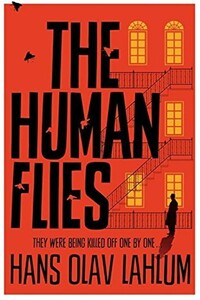
Oslo, 1968: ambitious young detective Inspector Kolbjorn Kristiansen is called to an apartment block, where a man has been found murdered. The victim, Harald Olesen, was a legendary hero of the Resistance during the Nazi occupation, and at first it is difficult to imagine who could have wanted him dead. But as Detective Inspector Kolbjorn Kristiansen (known as K2) begins to investigate, it seems clear that the murderer could only be one of Olesen's fellow tenants in the building. Soon, with the help of Patricia – a brilliant young woman confined to a wheelchair following a terrible accident – K2 will begin to untangle the web of lies surrounding Olesen's neighbors; each of whom, it seems, had their own reasons for wanting Olesen dead.
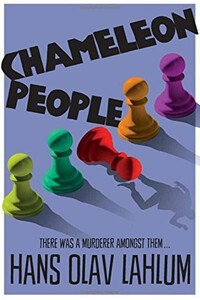
From the international bestselling author, Hans Olav Lahlum, comes Chameleon People, the fourth murder mystery in the K2 and Patricia series.1972. On a cold March morning the weekend peace is broken when a frantic young cyclist rings on Inspector Kolbjorn 'K2' Kristiansen's doorbell, desperate to speak to the detective.Compelled to help, K2 lets the boy inside, only to discover that he is being pursued by K2's colleagues in the Oslo police. A bloody knife is quickly found in the young man's pocket: a knife that matches the stab wounds of a politician murdered just a few streets away.The evidence seems clear-cut, and the arrest couldn't be easier.
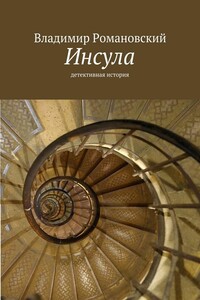
Детективная история, произошедшая в Санкт-Петербурге. Обычные люди в необычных обстоятельствах. Любовь, ненависть, жадность, драки и власть.
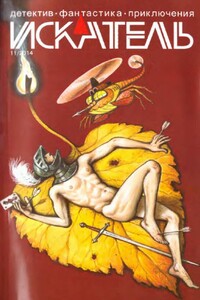
«ИСКАТЕЛЬ» — советский и российский литературный альманах. Издаётся с 1961 года. Публикует фантастические, приключенческие, детективные, военно-патриотические произведения, научно-популярные очерки и статьи. В 1961–1996 годах — литературное приложение к журналу «Вокруг света», с 1996 года — независимое издание.В 1961–1996 годах выходил шесть раз в год, в 1997–2002 годах — ежемесячно; с 2003 года выходит непериодически.Содержание:Анатолий Королев ПОЛИЦЕЙСКИЙ (повесть)Олег Быстров УКРАДИ МОЮ ЖИЗНЬ (окончание) (повесть)Владимир Лебедев ГОСТИ ИЗ НИОТКУДА.
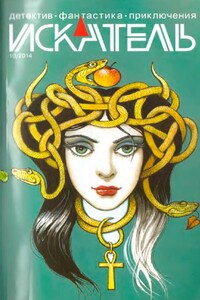
«ИСКАТЕЛЬ» — советский и российский литературный альманах. Издается с 1961 года. Публикует фантастические, приключенческие, детективные, военно-патриотические произведения, научно-популярные очерки и статьи. В 1961–1996 годах — литературное приложение к журналу «Вокруг света», с 1996 года — независимое издание.В 1961–1996 годах выходил шесть раз в год, в 1997–2002 годах — ежемесячно; с 2003 года выходит непериодически.Содержание:Олег Быстров УКРАДИ МОЮ ЖИЗНЬ (повесть);Петр Любестовский КЛЕТКА ДЛЯ НУТРИИ (повесть)
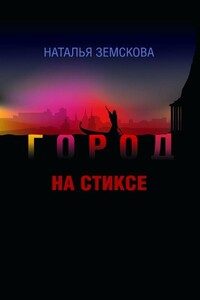
Наталья Земскова — журналист, театральный критик. В 2010 г. в издательстве «Астрель» (Санкт-Петербург) вышел её роман «Детородный возраст», который выдержал несколько переизданий. Остросюжетный роман «Город на Стиксе» — вторая книга писательницы. Молодая героиня, мечтает выйти замуж и уехать из забитого новостройками областного центра. Но вот у неё на глазах оживают тайны и легенды большого губернского города в центре России, судьбы талантливых людей, живущих рядом с нею. Роман «Город на Стиксе» — о выборе художника — провинция или столица? О том, чем рано или поздно приходится расплачиваться современному человеку, не верящему ни в Бога, ни в черта, а только в свой дар — за каждый неверный шаг.
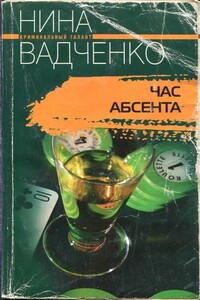
А ведь все так невинно начиналось! Четыре подружки коротали вечерок с бутылочкой «зеленого дьявола» и вели милую дамскую беседу о том… как бы им «грамотно» отправить на тот свет ненавистного шефа. Почему бы не помечтать о приятном в теплой дружеской компании? Все бы ничего, да только шефа вскоре действительно нашли мертвым, к тому же кто-то снял на видео посиделки четырех любительниц абсента. Впрочем, они и сами друг друга теперь подозревают. И распутать этот клубок противоречий по силам только их старой знакомой, неугомонной журналистке Инне Пономаренко…
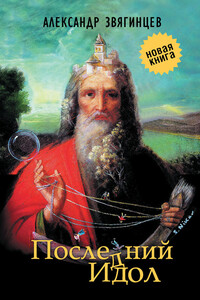
В сборник «Последний идол» вошли произведения Александра Звягинцева разных лет и разных жанров. Они объединены общей темой исторической памяти и личной ответственности человека в схватке со злом, которое порой предстает в самых неожиданных обличиях. Публикуются рассказы из циклов о делах следователей Багринцева и Северина, прокуроров Ольгина и Шип — уже известных читателям по сборнику Звягинцева «Кто-то из вас должен умереть!» (2012). Впервые увидит свет пьеса «Последний идол», а также цикл очерков писателя о событиях вокруг значительных фигур общественной и политической жизни России XIX–XX веков — от Петра Столыпина до Солженицына, от Александра Керенского до Льва Шейнина.